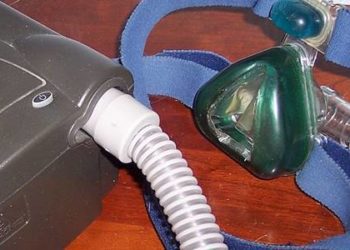Childhood cash supplementation program may improve outcomes into adulthood
1. In this longitudinal cohort study assessing the benefits of a cash supplementation program in an American Indian reserve, children whose families received supplementation reported less anxiety and depressive symptoms with better overall functioning by age 25 and 30 years.
2. The greatest benefits were observed in individuals whose families received the largest cash transfers for the longest period of time.
Evidence Rating Level: 2 (Good)
Study Rundown: Income supplementation programs such as universal basic income and the child tax credit are often mentioned as having the potential to enact long-term benefits to recipients. This study assessed whether an annual cash transfer of approximately $5000 from a southeastern American Indian tribe to tribal members on an American Indian reserve in North Carolina, USA enacted positive benefits into adulthood. Non-American Indian families living off-reserve who did not receive cash transfers were the comparison group. Approximately 1200 children ages 9, 11 and 13 years were assessed annually via interviews and then assessed at ages 25 and 30 years for psychiatric symptoms, substance use-related symptoms, and functioning. The length of time that cash supplements were received and the total amount of cash transferred was collected. Overall, participants whose families received cash transfers during childhood had fewer symptoms of anxiety and depression, used cannabis less, had improved functioning, and engaged in less risky behaviors compared to those who did not receive a cash transfer. Longer duration of transfers and larger amounts received led to the most beneficial outcomes. The most serious limitation of the study is the inability to account for many potential confounders such as intrinsic differences between the comparison groups that may result in differential outcomes. Furthermore, the study does not assess how a similar program would impact the population at large in the setting of likely collateral effects of a cash supplementation program.
Click to read the study in JAMA Pediatrics
Relevant Reading: Universal basic income in the developing world
In-Depth [retrospective cohort]: In this longitudinal, community-representative cohort study, children aged 9, 11 and 13, who lived on or off a tribal reserve, were assessed between 1993-2015 and followed until age 30 years. Participant and family characteristics such as family structure, income and socioeconomic status were assessed during the 4 years prior to the start of the cash transfers. Each family member who was legally an American Indian tribe member received approximately $5000 per year from casino profits. In-person interviews were completed with participants and their parents annually until aged 16, and alone at intervals thereafter, with data from ages 25 and 30 years included in the analysis. In total, 1266 children who completed follow-up interviews at ages 25 and 30 were included, of which 25% were American Indian. American Indian youth had more family and child risk factors prior to the cash transfers. Individuals whose families received cash transfers during childhood reported less symptoms of anxiety (RR 0.33), depression (RR 0.51), and cannabis (RR 0.47). They additionally reported improved physical health (RR 0.66), financial function (RR 0.78) and fewer risky behaviors (RR 0.57). Longer duration and amount of cash received was associated with similar beneficial outcomes.
Image: PD
©2022 2 Minute Medicine, Inc. All rights reserved. No works may be reproduced without expressed written consent from 2 Minute Medicine, Inc. Inquire about licensing here. No article should be construed as medical advice and is not intended as such by the authors or by 2 Minute Medicine, Inc.









